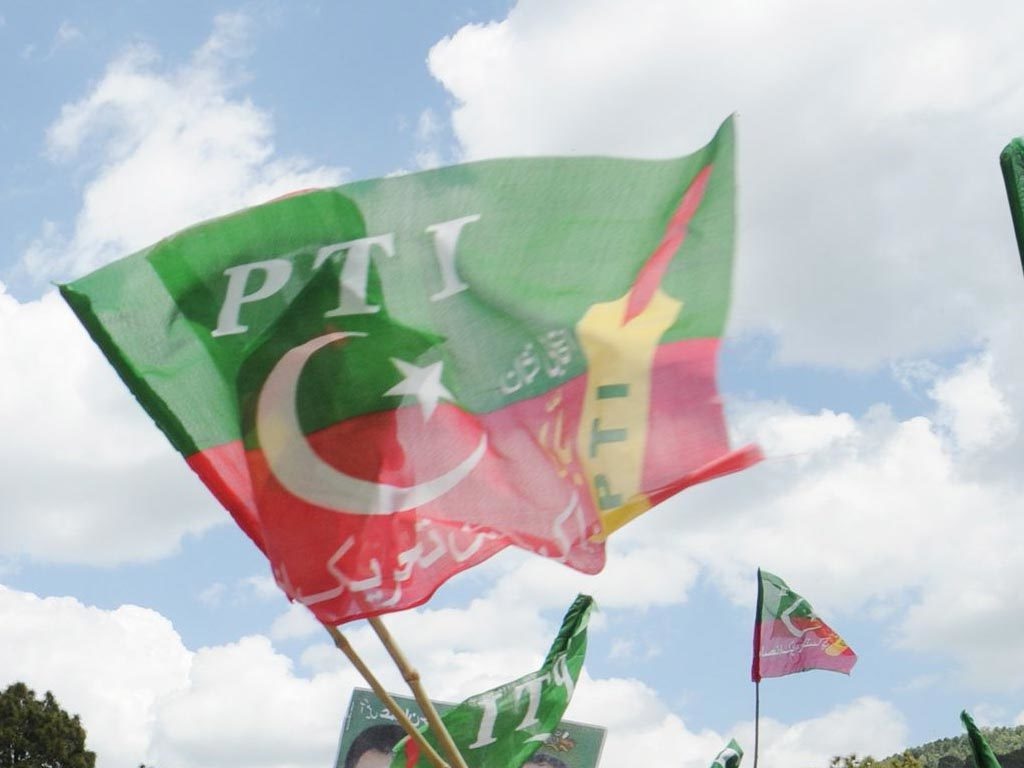ISLAMABAD: The ruling Pakistan Tehreek-e-Insaf (PTI) said on Monday that it intends to introduce electoral reforms in the country that would ensure transparency in the democratic process and level the playing field for all parties.
Speaking at a presser, adviser to the prime minister on parliamentary affairs Babar Awan along with Federal Minister for Information and Broadcasting Fawad Chaudhry said 49 sections in the Elections Act 2017 were being introduced, deleted or amended.
Sharing details on some of the major amendments, he added, Section 103 was being amended according to the prime minister’s vision to enable the use of electronic voting machines (EVMs) in the elections to resolve the issue of rigging.
“This will be the first big reform in history of the country,” claimed Awan.
Besides, he said, Section 94 would also be amended to extend the right of vote to overseas Pakistanis, adding this was also a big reform which had been demanded by expatriate Pakistanis.
A third reform was pertaining to political parties and had two components to it, he said, adding democracy should be seen in political parties. The first was that according to Section 202, political parties should have strength of 10,000 members to get registered as political parties. Secondly a new section, Section 213(A), was being introduced which would make it mandatory for political parties to hold annual conventions where people could speak up and give their comments on the performance of the party and its leaders.
The fourth big reform, according to Awan, had to do with complaints about polling staff and officers. He said that a provision was being introduced in Section 15 which would allow for the right to challenge the appointment of a polling agent or officer within a period of 15 days if anyone had reservations about it.
Another reform would be for electoral rolls to be prepared on the basis of registration data with national database and registration authority (Nadra). This measure, he added, would make people who resorted to illicit and fake means fear most.
Awan went on to explain that the delimitation exercise in constituencies based on population would be finished and some provisions of the Elections Act 2017 were being deleted. The list of registered voters with Nadra would now be used instead.
“We are also bringing two constitutional amendments,” said the adviser – the first on open balloting in Senate elections and allowing overseas Pakistanis to contest the elections.
Awan said the issue of electoral reforms had not created any constitutional crisis, however, a “crisis of trust in constitutional institutions has been created.”
He termed this crisis as a very dangerous thing and said that countries were not made up of just land and buildings, but the people and its institutions.
He added that the government only had two options after the results of 2018 elections were rejected by the opposition despite being seen by international observers and respected members of the media as by and large free and fair.
“We allow the status of business as usual to continue and do no reforms and the second is to do reforms and move ahead in the given circumstances according to whatever ground realities there are.
“Prime Minister Imran Khan has adopted the second route that we will do electoral reforms and move forward,” he added.
Awan said the prime minister had told him in the latest Cabinet meeting that the reforms would be brought in front of Pakistan’s civil society, press clubs, bar councils and associations and other stakeholders involved in improving Pakistan’s parliamentary system.
He said out of all the reforms he had mentioned, there was nothing that advantaged any one particular political party.
Speaking on the occasion, Chaudhry said our foundational point about democracy has been of trust in elections and electoral results.
He said after every election there was a quarrel and accusations among people with some rejecting the result and others accepting it. Fawad said Pakistan People’s Party (PPP) and Pakistan Muslim League-Nawaz (PML-N) had themselves called for open balloting in the Senate in their Charter of Democracy, yet when Prime Minister Imran Khan had invited them to come and talk on the issue – recognizing the validity of their previous stance – they had turned their backs on their it.
“If you aren’t ready for reforms, if we just have to cry after every election, then the political and democratic development will stop. You won’t be able to go ahead, that is why Prime Minister Khan’s vision is that come, let’s do reforms together,” he added.
He recounted the prime minister’s efforts in this regard such as his tweets, calling for the opposition to come together on the issue of electoral reforms and asked who was actually creating obstacles when the government wanted to move forward.
The information minister said EVMs would ensure quick and early results instead of having to wait till midnight and the other reforms were meant to increase the trust of the people, political parties and intelligentsia in the electoral process.
He added that PML-N leaders hadn’t even seen or tried to understand EVMs and rejected them outright. He advised them to take a look again and create a technical team.
“Pakistan’s scientists and engineers are our pride. You shouldn’t make every person controversial like this. The people who have created all this technology, I’m so proud of them.”
The country’s interest, he added, was now in introducing new and modern reforms in the electoral system.
Last wee, the prime minister had invited the opposition to sit down with the government and participate in bringing electoral reforms in order to restore the credibility of local polls.
Copyright Business Recorder, 2021
























Comments
Comments are closed.